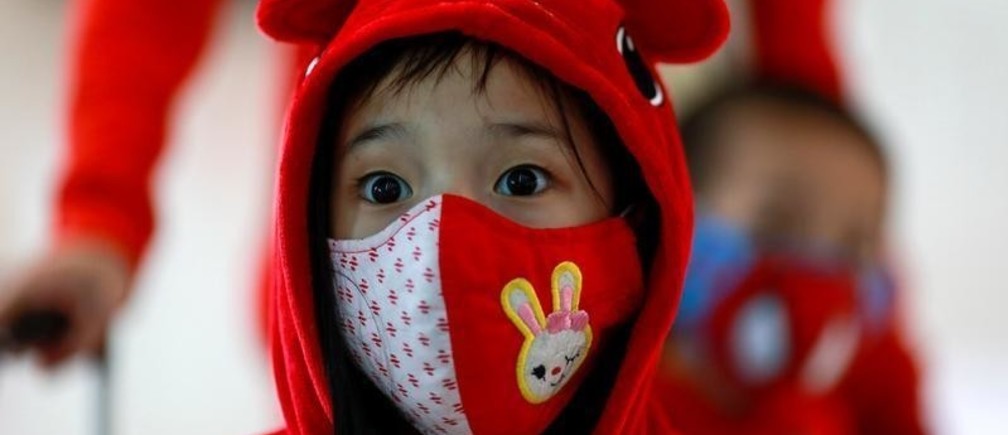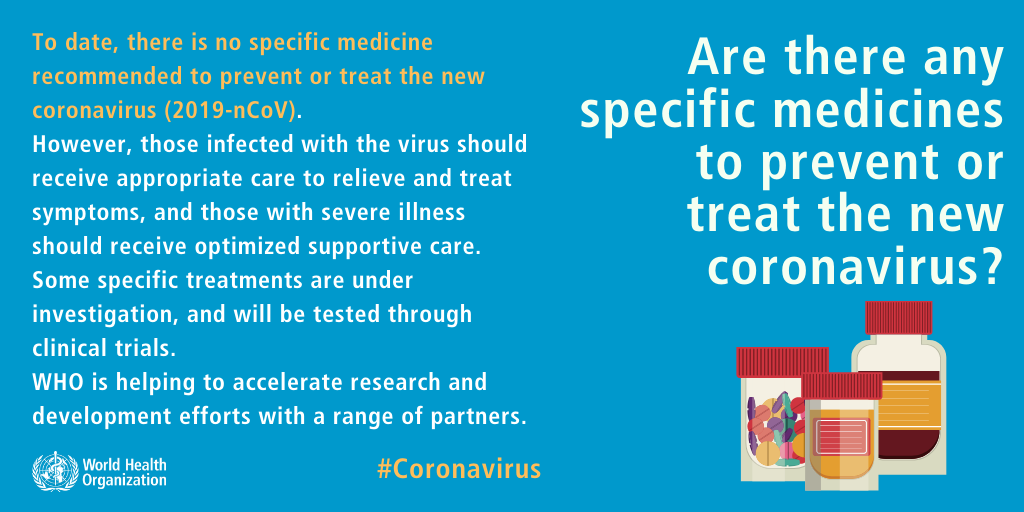Fact and fiction - myths and truths about COVID-19

More than 169,000 people worldwide have been infected with the novel coronavirus.
Image: REUTERS/Soe Zeya Tun
Explore and monitor how COVID-19 is affecting economies, industries and global issues
Stay up to date:
COVID-19
Listen to the article
This article was updated on 23 March 2020.
- The World Health Organization has warned about misinformation during the coronavirus pandemic.
- COVID-19 has spread to more than 169,000 people.
- America's Got Talent finalists, the Ndlovu Youth Choir has made a song about coronavirus, urging people not to spread rumours.
- Here's what you need to know about coronavirus - fact vs fiction.
Not long after coronavirus first started spreading in China, so too did a raft of misleading, sometimes plainly untrue articles, rumours and social media posts.
A range of groups are helping to fight bad information to keep people safe. Here's what you need to know now.
Fighting rumour with song
To stem the tide of rumours, Ndlovu Youth Choir, finalists on America's Got Talent have written a song called We've Got This - The Fight Against Coronavirus, which includes tips on safe hygiene and the line: Don't spread rumours.
Accept our marketing cookies to access this content.
These cookies are currently disabled in your browser.
Some of the falsehoods are connected with the origins of the new virus, with even a US Senator being criticized for helping spread the fake news. Did the virus come from a secret Chinese laboratory? No, no one really thinks that’s at all likely.
At-home testing kits
As countries across the globe struggle to test people for the virus, some companies are developing at-home testing kits.
But the US Food & Drug Administration warned on 20 March that it has not authorized any at-home tests for COVID-19.
It said: "We want to alert the American public that, at this time, the FDA has not authorized any test that is available to purchase for testing yourself at home for COVID-19."
But it added: "The FDA sees the public health value in expanding the availability of COVID-19 testing through safe and accurate tests that may include home collection, and we are actively working with test developers in this space."
Products with misleading claims
The retail giant, Amazon, stepped in when sales of items that were promised to treat or even cure COVID-19 started to appear on its site. Around one million were removed.
"Products that make medical marketing claims may not be legally marketed in the US without prior review and approval by the Food & Drug Administration. Amazon policy prohibits the listing or sale of products that are marketed as unapproved or unregistered medical devices," the company said.
Consumer misunderstandings
Regardless of the number of items being falsely marketed, there were still plenty of things for consumers to become fixated on. One of the first items to start vanishing off the shelves of stores and supermarkets was antibacterial hand-sanitizing gel.
Antibacterial products are really intended for killing bacteria, not viruses. But some hand gels are effective against coronavirus if they have a very high alcohol content.

Something else that has a high alcohol content is vodka. One drinks brand in the US took to social media to advise people that its vodka is best served in a glass and not used as a hand-wash. Despite being 40% proof, vodka simply isn’t alcoholic enough – an effective hand-sanitizing gel needs to contain at least 60% alcohol.
There was also a story circulating that claimed the Mexican beer, Corona, was being shunned by consumers who were wary that it might be connected in some way to the virus. It wasn't true, but the story flew around the world, showing the potency of social media as a fake news amplifier.
Frequently asked questions
As fears and misconceptions spread online, the World Health Organization (WHO) has been constantly updating its campaign to educate people on coronavirus, or COVID-19.
Here are key things to know about the novel coronavirus.
1.) Will eating lots of garlic help?
Garlic is considered a healthy food with some antimicrobial properties – but there are no indications it's helping anyone fight off Covid-19.
2.) Will the flu vaccine protect me?
Also, vaccines against pneumonia and flu do not provide protection against the novel coronavirus, says the WHO. It's simply too new, and work on a vaccine specifically for the new virus is still in process. At the World Economic Forum Annual Meeting in Davos, the Coalition for Epidemic Preparedness Innovations announced a new partnership to develop vaccines for COVID-19 as quickly as possible.
Accept our marketing cookies to access this content.
These cookies are currently disabled in your browser.
3.) How can I keep myself safe?
The WHO refutes a number of claims that things like ultra-violet lamps and hot-air hand-dryers can kill the virus. Instead, it strongly recommends robust personal hygiene.
One of the best things you can do is wash your hands regularly – especially if you have been sneezing. And if you have been sneezing, make sure to cover and catch that sneeze. You can cup your hands over your face, or sneeze into the crook of your elbow, or into a tissue. But make sure to securely dispose of the tissue straight away.
Other hygiene and self-care myths the WHO has been keen to clear up include:
Can regularly rinsing your nose with saline help prevent infection with the new coronavirus?
No. There is no evidence that regularly rinsing the nose with saline has protected people from infection with the new coronavirus.
Can spraying alcohol or chlorine all over your body kill the new coronavirus?
No. Spraying alcohol or chlorine all over your body will not kill viruses that have already entered your body.
Are antibiotics effective in preventing and treating the new coronavirus?
No. Antibiotics do not work against viruses, only bacteria.
4.) Does climate affect the virus?
From the evidence so far, the COVID-19 is at home in hot and humid weather, as well as the cold. You could try having a very hot bath – but that wouldn't do much either, according to the WHO. Your body temperature will not be affected greatly by normal changes in outside temperature, which means the coronavirus will always be comfortable.
5.) Can I contract the virus from letters and packages sent from China?
No. According to the WHO, people receiving post from China are not at risk of catching the new coronavirus. The WHO knows from previous analysis that coronaviruses do not survive long on objects, such as letters or packages.
What is the World Economic Forum doing about epidemics?
5.) What about pets? Can I catch it from them?
COVID-19 may have come from animals, but your pets are not likely to be part of the equation. The WHO says, "At present, there is no evidence that companion animals/pets such as dogs or cats can be infected with the new coronavirus."
There are lots of other reasons for good hygiene around pets, though. Some common bacteria can pass between animals and people, such as E.coli and Salmonella. Washing your hands with soap and water can guard against them.
Don't miss any update on this topic
Create a free account and access your personalized content collection with our latest publications and analyses.
License and Republishing
World Economic Forum articles may be republished in accordance with the Creative Commons Attribution-NonCommercial-NoDerivatives 4.0 International Public License, and in accordance with our Terms of Use.
The views expressed in this article are those of the author alone and not the World Economic Forum.
Related topics:
Forum Stories newsletter
Bringing you weekly curated insights and analysis on the global issues that matter.
More on Health and Healthcare SystemsSee all
Gaurav Ghewade
June 17, 2025
Gareth Francis
June 12, 2025
Shyam Bishen
June 10, 2025
Carolina Aguilar
June 5, 2025











